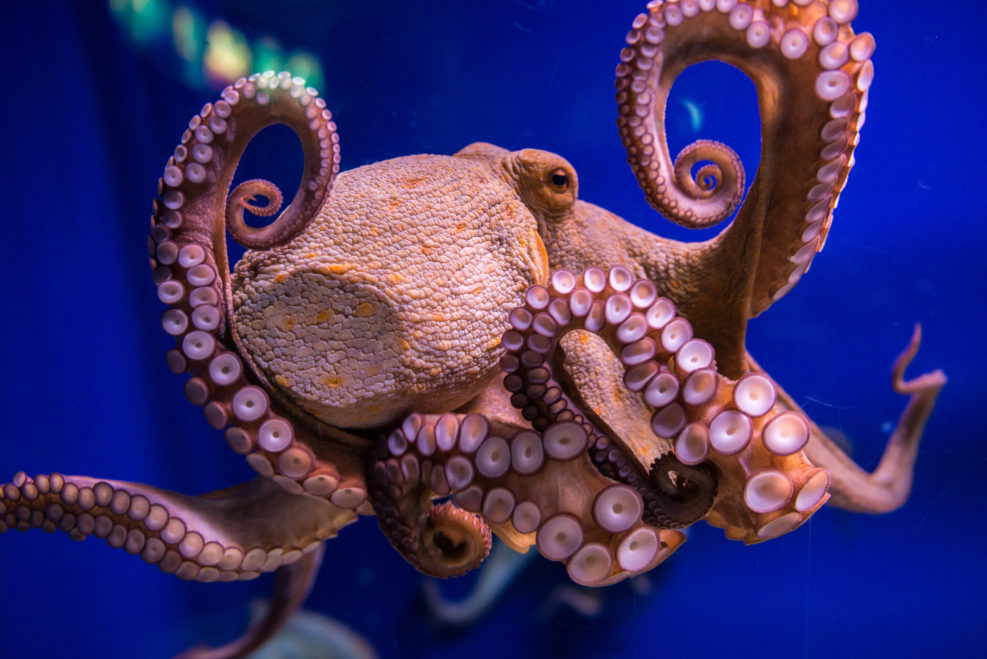
TagOctopus (intelligence)


Octopus Intelligence Is Unlike Anything We Know
Could such a different neurology really evolve purely by natural selection acting on random mutations?
Octopus Intelligence Shakes Up Darwin’s Tree
There does not seem to be a Tree of Intelligence, which deepens the mystery of intelligence
Science Paper: Could Octopuses Be Aliens From Outer Space?
It’s the octopus’s intelligence that causes such usual theses to float in the science literatureA 2018 science paper that suggests that the brainy cephalopod might have originated off the planet has been receiving new attention. The basic thesis is that the Cambrian Explosion, which produced most of the basic animal life forms we see today, was the outcome of extraterrestrial viruses carried on a meteor that crashed onto Earth 540 million years ago. The underlying theory is panspermia, a hypothesis espoused by Francis Crick, that some viruses and bacteria travel on the tails of comets or meteors and may take root on planets: These comets could have introduced Earth to novel life-forms that evolved on other planets, including viruses, durable microorganisms like unearthly tardigrades or, as the new study suggests, even fertilized animal eggs Read More ›